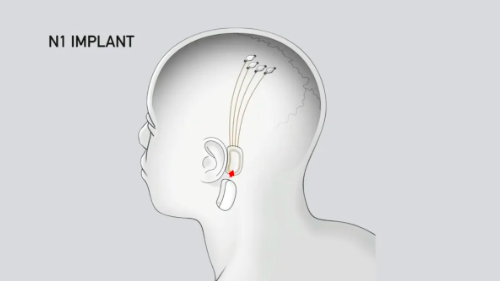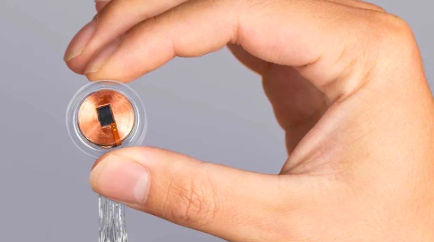The PRIME Study (Precise Robotically IMplanted Brain-Computer InterfacE) which was approved by the FDA in May of last year, is the feat undertaken by Elon Musk’s neurotechnology company, Neuralink. The plan is to use a highly capable surgical robot to implant their new N1 Chip into the brain of a patient in order to create “a generalized brain interface to restore autonomy to those with unmet medical needs,” according to their website. The implant procedure requires a custom-made microscopic needle with 10 to 12 microns in width, making the implant cosmetically invisible. When seeking candidates for the test trial, Neuralink emphasized that individuals with quadriplegia due to a cervical spinal cord injury or amyotrophic lateral sclerosis (ALS) would qualify to be entered into testing.
The first N1 Chip was officially implanted and announced on January 29th, 2023, with Elon Musk tweeting on his platform, X:

It can be inferred that the anonymous patient is likely an individual living with a physical handicap. Musk has stated in the past that the goal of this project is to create a brain-computer interface (BCI) in order to enable these patients without normal motor functions to control a computer cursor or keyboard with nothing but their thoughts. Musk’s BCI product, or “Telepathy” which he cleverly named, would create a communication pathway directly between an “enhanced” or “chipped” brain, and an external device. Musk believes that his deeply ambitious goal is very possible. Additionally during the PRIME study, patients were reportedly told that they “could significantly shape the future of interaction and independence, not just for you but for countless others.”

It seems that Neuralink is presenting itself to be the vanguard for biotech, and is slowly closing the gap between mechanical and neurological computing. Musk reportedly discussed a possible “neural lace” in 2017 when first confirming professional ties to Neuralink, that would symbiotically merge the brain with artificial intelligence.
Despite the initial success of the PRIME study, the plans of Musk and Neuralink have not come without criticism. In late November of last year, four legislators asked the U.S. Securities and Exchange Commission to investigate whether Musk had misled investors about the safety of its technology after reports showed problems with the implants on monkeys which included paralysis, seizures, and brain swelling. These reports emerged in 2022 and 2023, and claimed that Neuralink’s testing had resulted in devastating effects for monkeys and other animals used. In response, Musk tweeted that no monkey has died as a result of implant testing, and that in order to minimize the risk to healthy monkeys, Neuralink opted to only use terminally ill monkeys instead of healthier options.
There are additional concerns as well over the technology that Musk is marketing, with many critics citing moral reasons at the root of their displeasure. Brain implants and artificial intelligence research have brought people to question where we should draw the line in technological development. Tristan Harris, Co-Founder of Center for Humane Technology and Stanford Alumni, has been urging us for years about the present dangers of cellphone and social media addiction. Being far more innocent than a brain implant, he says that our cell phones and web screens alone are already negatively impacting the way we interact with each other as humans. Being an ethicist in the 21st century, his goal is to ultimately change the philosophy we use going into the field of applied technology and computer-science. Maybe one day Elon Musk will sit down with him and take his advice, but for now Harris will continue to spread his message:
“The ultimate freedom is a free mind, and we need technology that’s on our team to help us live, feel, think and act freely. We need our smartphones, notifications screens and web browsers to be exoskeletons for our minds and interpersonal relationships that put our values, not our impulses, first.”

